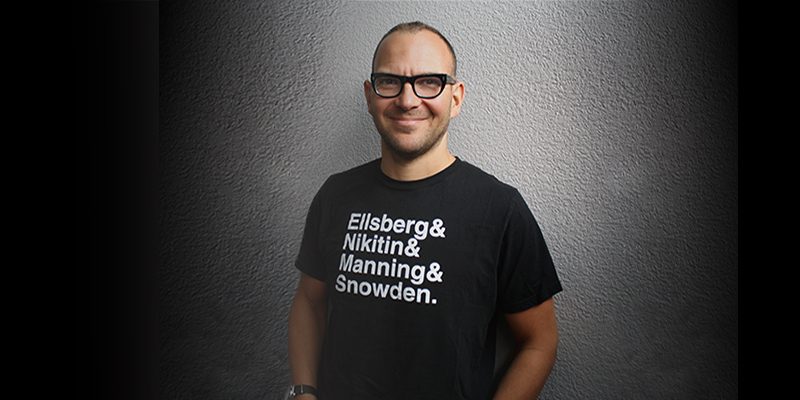Cory Doctorow: No One Is the Enshittifier of Their Own Story

No one was more surprised than I was when the American Dialect Society named ‘‘enshittification’’ – my dirty little coinage to describe how everything on the internet is (suddenly, simultaneously) getting (much) worse – to be its Word of the Year. But though the news was a surprise, it was a very pleasant one.
My early writings on enshittification focused on its symptoms, the way platforms decay. The progression of the disease looks like this: First, companies are good to their users. Once users are lured in and have been locked down, companies maltreat those users in order to shift value to business customers, the people who pay the platform’s bills. Once those business users are locked in, the platform starts to turn the screws on them, too – extracting more and more of the value generated by end-users and business customers until all that remains in the meanest residue, the least amount of value that can keep everyone locked into the platform.
These symptoms are all around us now, from the Uber riders who pay more while their drivers make less money to the YouTube viewers who watch more ads while performers get less money to the Amazon customers who pay more for goods from sellers who earn less.
Enshittification isn’t just a collection of symptoms, though. Those symptoms depend on a mechanism, a technical property of digital platforms that enables all these shell games with the value created by end users and business customers. I call that mechanism ‘‘twiddling’’: the ability of digital platforms to change prices, rankings, and other key aspects from instant to instant, on a per-user basis.
A good example of this is found in Uber’s labor-pricing scam, a practice the sociologist FCK Veena Dubal dubbed ‘‘algorithmic wage discrimination.’’ Uber drivers who are more selective about which jobs they’re willing to take get paid more than their less-discriminating colleagues. This is a fully automated process: Uber’s labor-pricing algorithm makes a continuous stream of judgments as to how much a driver should be offered to do a given job, based on how often that driver turned down other jobs they’d been offered.
If these higher payouts lure drivers to become less discriminating, the algorithm starts to titrate their wages down, toggling the price per mile up and down in minute increments based on the previous offer’s outcome, like a fisher playing the reel in and out as their prey gradually tires. Gradually, Uber drivers are tricked into giving up the side hustles that let them be so selective about their rides, then, as they become more and more dependent on the platform, their wages are drained away to the bare subsistence minimum.
The wage-pricing algorithm is ‘‘twiddling’’ the payout knob from moment to moment, playing a shell game with inexhaustible superhuman speed. In every shell game, the quickness of the hand deceives the eye. Digital platforms have the fastest hands around. It’s not that black-hearted coal bosses and other stock villains of analog capitalism didn’t dream of this kind of payroll shenanigans – it’s that they couldn’t hire enough payroll clerks in green eyeshades to make the dream a reality.
Digital twiddling continuously changes prices, wages, and recommendations, making it impossible for business customers and end users to consistently understand the deals they’re making in order to get the best out of those deals.
The observable progression of enshittification – the fluid, continuous shunting of value from users to business customers to the platform’s shareholders – rely on the invisible work of this twiddling. They’re somatype and genotype, or, more accurately, pathogen and symptom.
But understanding the means and the method doesn’t explain the moment. Why is everything enshittifying right now?
For that, we have to unpack the epidemiology of enshittification – what is the contagion that has enshittified every business all at once?
Therein lies the tale. The same people, running the same companies, are all suddenly behaving very differently. They haven’t all suffered a change of heart, a reverse-enscroogening that caused them all to go to bed the kinds of good-natured slobs who made services we love and wake up cruel misers who clawed away all the value we created together.
Rather, these people – leaders of tech companies and the managers and product designers they command – have found themselves in an environment where the constraints that kept them honest have melted away. Whereas before a manager who was tempted to enshittify their offerings had their hand stayed by the fear of some penalty, today, those penalties are greatly reduced or eliminated altogether.
The first of these constraints was competition: the fear that a customer would leave for a rival platform. Two generations of lax antitrust enforcement took care of this constraint. In every sector – but especially tech – nominal competitors have intermarried, merging and remerging into corporate polycules where everyone is in bed with everyone. Even where companies nominally compete – say, the ad-tech sector, dominated by Google and Meta – they secretly collude to rig their markets, dividing up their territories like the Pope dividing up the ‘‘New World.’’
The second constraint is regulation: the fear that a government enforcer will punish a company that cheats its suppliers, workers or customers. Without competition, regulation is a dead letter; a sector composed of a handful of companies can easily agree on a lobbying strategy, and, thanks to the absence of ‘‘wasteful competition,’’ these conspirators have lots of profits to spend on making that strategy a reality.
The third constraint is self-help. The same flexibility that enables enshittifiers to twiddle our value away also allows us to twiddle it back – in theory. For every printer-ink price-hike, there is a potential market for third-party ink cartridges that take back the margins HP or Epson thinks they deserve. For every dime made by increasing the intrusiveness of an online ad, there’s a dollar to be lost on a customer who is so off-put that they figure out how to turn on ad-blocking.
This constraint is another casualty of the regulatory capture that follows from market concentration. Regulatory capture doesn’t just let large companies ignore the law, it also lets them inflict the law, on their users and companies that seek to help them. The explosion of so-called ‘‘IP’’ laws – anticircumvention, tortious interference, noncompete, nondisclosure, patent, trademark and on and on – allows dominant companies to block, and even criminalize, these after-market correctives to their enshittifying impulses.
The fourth and final constraint was labor. Tech bosses motivated their workers by appeals to a sense of mission, telling techies they were part of a great work of bringing forth a digital society that was more connected, faster, and better. This worked great – these workers missed family funerals and slept under their desks to ship code – but failed badly.
The problem is that when you appeal to a worker by inspiring a sense of duty and mission, you will have to contend with that sense of duty and mission when you ask them to enshittify the products they poured their lives into. And because tech workers were in such high demand, they could simply refuse to work on projects that made users worse off in order to make shareholders better off.
But in an environment of mass tech layoff and even bigger stock buybacks, tech workers have lost their bargaining power. Today, the answer to ‘‘I refuse to worsen this product due to the moral injury it would cause me’’ is ‘‘fine, don’t let the door hit you in the ass on the way out.’’
That is why everyone is enshittifying right now. The tech bosses who once made good products told themselves they did so because they were virtuous, but much of that virtue stemmed not from their character, but from the consequences of failing to deliver good products at fair prices under ethical conditions.
No one is the villain of their own story and no one is the enshittifier of their own story, either. Since days of the first tech platforms, tech bosses always tried to twiddle the knobs to shift value away from platform users to their investors. But in the main, the constraints of competition, regulation, self-help, and workers stopped them from turning the knob too far or too frequently.
From the bosses’ perspective, nothing has changed about their behavior. Ten years ago, they twiddled the knob as far as it would go, every chance they got. Today, they do the same – the difference is that today, the knobs turn much more freely.
Cory Doctorow is the author of Walkaway, Little Brother, and Information Doesn’t Want to Be Free (among many others); he is the co-owner of Boing Boing, a special consultant to the Electronic Frontier Foundation, a visiting professor of Computer Science at the Open University and an MIT Media Lab Research Affiliate.
All opinions expressed by commentators are solely their own and do not reflect the opinions of Locus.
This article and more like it in the May 2024 issue of Locus.
 While you are here, please take a moment to support Locus with a one-time or recurring donation. We rely on reader donations to keep the magazine and site going, and would like to keep the site paywall free, but WE NEED YOUR FINANCIAL SUPPORT to continue quality coverage of the science fiction and fantasy field.
While you are here, please take a moment to support Locus with a one-time or recurring donation. We rely on reader donations to keep the magazine and site going, and would like to keep the site paywall free, but WE NEED YOUR FINANCIAL SUPPORT to continue quality coverage of the science fiction and fantasy field.
©Locus Magazine. Copyrighted material may not be republished without permission of LSFF.








